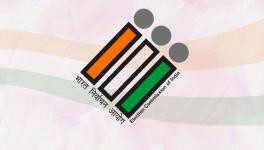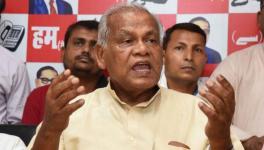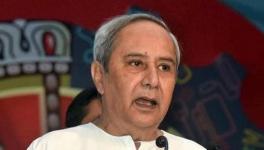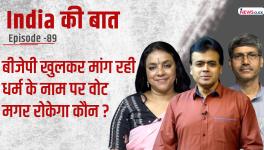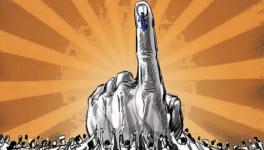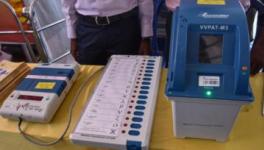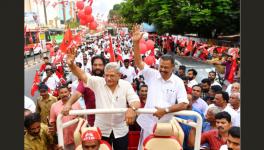Why Delhi Needs a Grand Idea, a Dandi March for Our Times
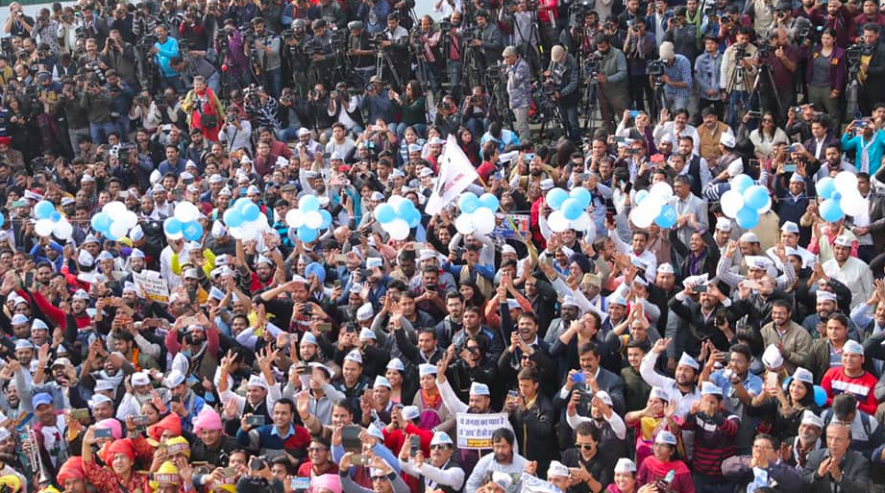
The defeat of the BJP in the just concluded Delhi state elections is important out of all proportion to the size of the state, or the few seats it represents in Parliament. Its position as a Union Territory in which a great deal of power—especially over the police—is in the hands of the central government limits the winning party even further.
Nevertheless, Delhi is the National Capital Territory. This is where the diplomats arrive, where power is concentrated, and where much of the media are posted, or located. It plays an outsized role in the national consciousness. This was reflected most strikingly in the BJP’s election strategy. While some of the posters focussed on civic issues, the vast majority of them focussed on issues other than Delhi. The flyover from Noida to Delhi was plastered with huge posters with Narendra Modi’s face, with three issues highlighted: the scrapping of Article 370, the criminalisation of triple talaq, and the implementation of the National Register of Citizens in Assam.
The BJP ran its campaign, a high-decibel one—facilitated by TV channels acting as spokespeople of the BJP rather than as journalists—around these issues. The person front and centre on the poster was the same person whose pictures and comments featured on TV programmes: Narendra Modi.
The Prime Minister of the country was running the election campaign on behalf of the BJP against the chief minister of a UT. And he lost, comprehensively. The BJP has been crushed, winning only 8 seats out of 70 in the Delhi State Assembly, with the Aam Aadmi Party (AAP) winning all the rest.
The crushing defeat has been so embarrassing that the posters of Modi have disappeared double quick. This is the first and most important lesson of the election, that the BJP cannot just be defeated while being led by Modi, but decimated.
This has been accomplished by AAP largely by focussing on service delivery—keeping the focus on the politics of bijli, sadak, pani. AAP focussed on its record of service delivery, of an administration that was responsive to the needs of its constituents, transparent, with a reputation of being corruption free. This is important, and shows the future of urban politics in India. Kejriwal is a glorified mayor, which tells us we need more empowered mayors. Not only can they deliver, if properly incentivised, they can defeat the richest, most powerful political party that tries to distract the electorate from issues that are not their direct concern.
That is also the failure of AAP, or the limit of its reach. It can’t, and won’t, challenge higher politics. Bijli, sadak, pani are all well and good, but not if the bijli is provided in detention centres, where the sadak leads, where pani is served to those stripped of citizenship at the whim of a bigoted and incompetent government, as has happened in Assam.
Kejriwal, and AAP, absolutely refused to discuss these issues. He fell enthusiastically in line with the BJP’s horrible policies in Kashmir. When students raised the issues and were viciously attacked, the AAP was prominently missing in action. The Congress mobilised their students wing, the Left was visibly represented. The Bhim Army Chief, Chandrashekhar Azad, was spectacular. Even Deepika Padukone turned up at JNU. All that Kejriwal could summon up was a tweet.
That politics of deflection and cowardice reached its inevitable nadir when AAP suggested that the ladies of Shaheen Bagh abandon their protests for the sake of Delhi’s elections—without once even being able to summon up the courage to speak on the issues. When people are protesting about their very citizenship, to suggest that this can be abandoned for the sake of a politics of mere service delivery was both outrageous and presumptuous.
Nevertheless, although AAP abandoned Delhi’s residents and students who were—quite literally—being shot at in the streets of Delhi, while the ruling regime called for murder, they seem not to have abandoned them. There is still a value to what AAP was delivering—a governance where the politics of hate was being kept out—even if it was not able to even speak about it.
This was brought home most when the rabble-rousing Chief Minister of Uttar Pradesh, Ajay Singh Bisht, turned up. There could not have been a sharper contrast, and the absolute lack of response among Delhi’s residents was striking. This confirms that the politics of hate only empowers people like Bisht, who have little power to move people without the devastation of lack of opportunity in places like UP. These leaders can’t do “service delivery”, all they can deliver is hate, and these are the only leaders that the BJP has nurtured. If a place is relatively decently governed, and has some opportunities—unfair as they might be—like Delhi, the populace is somewhat insulated.
But there is a limit to this good. This insulation works only at the local level. If parties resolutely look away from the devastation of wider policies in places like Assam and Kashmir—actively supplement them, and undercut civil society actors opposing them, they only feed the poison that will eventually overwhelm these islands of relative stability. The shooter at Jamia, coming from Uttar Pradesh just outside of Delhi’s borders, should have been a warning. An ostrich-like approach to these problems will not save any party, no matter how well it delivers on services, no matter how secular it is in practice, if that is not confronted. This is, at best, denial. At worst it is a form of opportunistic communalism that only empowers the weaponised bigotry that the BJP has unloosed upon the country.
The one party that did try and confront the BJP on this was the Congress, but it did so relatively quietly. It was needed on the ground, early, committed, and willing to take the hit (to be fair, some leaders did), but imagine if chief ministers of INC-ruled states had campaigned. Imagine if this was made a referendum, a Dandi March for our times. That is the kind of big thinking that is needed to challenge this—something that Jamia, JNU, Shaheen Bagh are doing. The Congress is not yet ready to do this, apparently.
Unfortunately for the Congress it has a much longer history, in which opportunistic communalism has had a long and bloody history. This has laid the road for the Sangh and the destroyers of the republic, and of itself. Can it change fundamentally? Some of its young leaders are pushing for it, some of its top leaders are as well, but there is a large number of time-servers, people who are a product of a system of patronage, and want to save their own patronage networks. Politics of courage challenges this. Are the change-makers strong enough to push it through, to confront and reject the failures of its past? I don’t know. What I do know is that it is desperately needed.
These elections have shown us how terribly compromised the Election Commission and the Supreme Court have become. When politicians of the ruling party were calling for murder, when people were threatening, and firing, guns at those taking part in peaceful, constitutional protests, these institutions took little or no action. By their inaction they are facilitating both the horrors of the current regime as well as the breakdown of the democratic republic. The less said about mainstream news, the better. The vast majority of it, especially TV news, is spent their time openly campaigning and mourning for the Sangh.
Most important in all of this has been what has been ignored. While the BJP campaigned on the NRC and Kashmir, the devastation in these two regions has gone undiscussed—what AAP refused to do, the Congress was unable to do, and the news organisations refuse to show. These regions have been economically devastated, are in political turmoil, and a great cost has been extracted from the civilians (and security forces) that are there. A politics that does not care, or is unable to make others care, about their fellow citizens is a politics of self-destruction.
This was most starkly illustrated when the DSP from J&K, Davinder Singh, was arrested in the company of two heavily-armed militants in January. Had those militants carried out an attack in Jammu, or in Delhi, it would have been devastating in lives lost. It would also have made these Delhi elections about anything else but service delivery.
This politics has to be confronted, it has to be confronted now, before it destroys us all.
The writer is an author who lives in Delhi. His novel Jimmy the Terrorist was shortlisted for the 2009 Man Asian Literary Prize. The views are personal.
Get the latest reports & analysis with people's perspective on Protests, movements & deep analytical videos, discussions of the current affairs in your Telegram app. Subscribe to NewsClick's Telegram channel & get Real-Time updates on stories, as they get published on our website.









